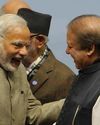THE GOVERNMENT’S CROP INSURANCE SCHEME IS A LAUDABLE EFFORT IN THEORY. BUT OUR ONGROUND INVESTIGATIONS SHOW THAT THERE IS MUCH THAT IS WRONG AND UNFAIR.

WHEN THE NARENDRA Modi government took charge, the gods welcomed (or rather cursed) it with two back to back drought years (2014, 2015), a first in three decades. Obviously, agriculture growth and productivity plummeted. Then the unseasonal rains lashed out at the already battered farmers. The Centre as well as the state governments loosened pockets to compensate them for their damaged crops destroyed either by rains or by lack of it. The governments followed the usual ritual of announcing the compensation package followed by surveying the fields and then sending them monies through cheques.
These two years also exposed the failure of the government’s then ongoing crop insurance schemes like the National Agriculture Insurance Scheme (NAIS) and Modified NAIS (MNAIS). Also, the government somewhere felt the need to shift from the culture of compensation packages to a system of crop insurance.
In a country where even well off and educated folks don’t take their insurance seriously, making poor farmers accept crop insurance was going to be an uphill task. The government merged earlier insurance policies and tweaked them to make them more lucrative, including reducing the premiums considerably.
This story is from the July 2017 edition of Swarajya Mag.
Start your 7-day Magzter GOLD free trial to access thousands of curated premium stories, and 9,000+ magazines and newspapers.
Already a subscriber ? Sign In
This story is from the July 2017 edition of Swarajya Mag.
Start your 7-day Magzter GOLD free trial to access thousands of curated premium stories, and 9,000+ magazines and newspapers.
Already a subscriber? Sign In

Refuging Progess
There is a well-orchestrated global conspiracy to deny scientific and technological developments from the West to Third World countries.

The Monk Of Science
Vivekananda believed that Religion should be subjected to scientific methods of investigation. The third and concluding part of our series on the Swami and his views on science.
The Next Step
Indian technical manpower can be trained for high-value-added emerging services in the era of mass commoditisation of hardware.
The Threat Of Autarchy
The force of globalisation is an irreversible reality, and it is countries like India and China that will nurture it going forward.

Neanderthals: The Womb Of Caves
Recent discoveries indicate that Neanderthals may have had a rich inner life, including symbolic thought. Indeed, they may have been the progenitors of human religions.

Getting India's World Right
Incremental concessions will get India nowhere with Pakistan and China. What we need is a classically conservative foreign policy, based on realism.

The Hesitant Orbit
In order to march boldly ahead into the deep space, New Delhi must work towards building a station, boost its techno-economic planning and use the Indian Space Research Organisation smartly.

Nudges And Narratives
The debate surrounding Sanjay Leela Bhansali’s Padmavati brings India a complex network of portraits within a cultural world-system.

The Spell Of Specialisation
THE INDIAN ADMINISTRATIVE SERVICE NEEDS AN URGENT REJIG. THE KEY TO SPEED AND EFFICIENCY LIES IN PUTTING AN END TO A GENERALIST APPROACH AND IN GOING FOR A NEW SERVICE.
The Great Gamble
With demonetisation, the prime minister has taken a huge risk— both economic and political. He must succeed, because this move could transform both our economy and our society.